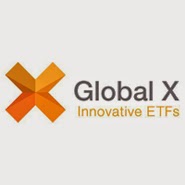Morningstar today peers into its corporate bond crystal ball and sees a better future ahead for high-grade bonds than their high-yield brethren in 2015. Morningstar says credit spreads show corporate bonds are fairly valued, but the recent tailwind from declining interest rates “was the main driver for corporate bond returns” but now that favorable condition “has likely run its course.” From Dave Sekera, director of corporate bond strategy at Morningstar:
"...We expect high-yield bonds to provide a better return than investment grade in 2015. The issuers most affected by falling oil prices have taken the brunt of losses over the past few weeks, and the additional carry in the index will help offset any further widening if oil prices fall more. In addition, while we don’t foresee interest rates spiking higher, we do expect interest rates to drift upward through the year. High-yield bonds have a lower duration and will be less affected by rising rates. This factor, along with our forecast of moderate economic growth in the U.S., should hold down default rates, and it leads us to believe that high-yield bonds should hold their value better than investment-grade bonds..."
******
AdvisorShares Peritus High Yield (HYLD) is a component of the D2 Capital Management Multi-Asset Income Portfolio. Current yield on the portfolio is 4.94% and year to date the portfolio is up 6.89% (as of 29 December 2014).Disclosure: I own the D2 Capital Management Multi-Asset Income Portfolio
The views expressed here are that of myself or the cited individual or firm and do not constitute a recommendation, solicitation, or offer by myself, D2 Capital Management, LLC or its affiliates to buy or sell any securities, futures, options or other financial instruments or provide any investment advice or service. D2, its clients, and its employees may or may not own any of the securities (or their derivatives) mentioned in this article.
The Jacksonville Business Journal has ranked D2 Capital Management in the top 25 of Certified Financial Planners in Jacksonville. The Firm is also a member of the Financial Planning Association of Northeast Florida, the Jacksonville Chamber of Commerce, the Southside Businessmen's Club, and the Beaches Business Association.



















